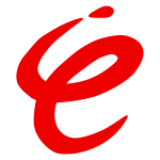
Job interviews can be intimidating, but preparation is key to success. This blog shares essential techniques to help you impress recruiters. Learn how to present your strengths confidently and handle tough questions. Ace your next interview with ease!
Excelling in a job interview requires a combination of thorough preparation and strategic follow-up. Post-interview activities like notifying your referees and contacting HR can significantly boost your chances of success. Here are some actionable steps to help you stand out and secure your dream job:

1. Understand the Job Description
To tailor your application effectively, review the job description carefully. This will give you insights into the required skills and qualifications, as well as the responsibilities involved. Use this information to customize your CV and anticipate potential interview questions. Assess your strengths and areas for improvement to determine the best approach for the interview.
2. Research the Company
Employers favor candidates who are familiar with their organization. Explore the company’s website and social media channels to learn about its mission, operations, and culture. Check employee reviews on third-party platforms to understand workplace dynamics. Additionally, research the interviewer on professional networks to get a sense of their personality and professional style.
3. Update Your CV
After gathering insights about the job and company, revise your CV to highlight relevant skills and experiences. Incorporate key terms from the job description and ensure all details are truthful. This will make your resume more appealing and increase your chances of being shortlisted.
4. Practice Your Responses
Revisit your subject knowledge and prepare for any potential tests. Organize your thoughts to articulate them clearly during the interview. Anticipate questions like:
Tell us about yourself.
Why do you want this job?
What are your strengths and weaknesses?
Conduct mock interviews to refine your answers and boost your confidence. Recording your practice sessions can help identify areas for improvement.
5. Arrive on Time
Plan your journey to reach the interview venue at least 15 minutes early. Punctuality reflects your respect for time and allows you to settle in before the interview. Use navigation tools to familiarize yourself with the route, and arrange transportation well in advance.
6. Dress Appropriately
Follow any specific dress code mentioned in the interview invitation. In the absence of guidelines, opt for formal attire. Prepare your outfit, accessories, and grooming essentials the night before to avoid last-minute stress.
7. Organize Your Documents
Carry all necessary documents, such as your CV, cover letter, academic certificates, and reference letters. Arrange them neatly in a folder. Don’t forget to bring a pen, notebook, and any required electronic devices for presentations.
8. Make a Strong First Impression
Professionalism begins the moment you arrive at the venue. Be courteous to everyone you meet, from the security personnel to the receptionist. Maintain a calm demeanor while waiting and minimize interactions with other candidates. Switch your phone to silent mode to avoid distractions.
9. Communicate Clearly
Greet the interviewer warmly to create a positive atmosphere. Speak at a steady pace with clear enunciation. If you’re unsure about a question, take a moment to compose your thoughts before answering. Honesty and clarity will leave a lasting impression.
10. Listen Attentively
Active listening is key to understanding the interviewer’s expectations. Avoid interrupting and focus on their words and body language. This will help you provide thoughtful and relevant responses.
11. Showcase Your Skills and Achievements
Highlight your strengths and accomplishments that align with the job requirements. Use questions like “What are your strengths?” as opportunities to demonstrate your suitability for the role. Maintain a confident yet humble tone throughout.
12. Exhibit Positive Body Language
Non-verbal cues play a significant role in shaping perceptions. Sit upright, make eye contact, and avoid fidgeting to project confidence and professionalism. A friendly demeanor will help establish rapport with the interviewer.
13. Be Concise and Relevant
Keep your answers succinct and focused. While it’s important to provide complete information, avoid overly long explanations. Tailor your responses to address the interviewer’s specific concerns and maintain a positive tone when discussing past employers.
14. Ask Insightful Questions
When given the chance to ask questions, focus on topics like daily responsibilities, company values, and team dynamics. Avoid bringing up salary or benefits during initial interviews unless prompted.
15. Notify Your References
List reliable references in your resume and inform them about the possibility of verification calls. Keeping them in the loop ensures consistency in the information provided to the employer.
16. Follow Up with HR
If you don’t receive feedback within the expected timeframe, follow up politely via email or phone. Mention your name, the position you applied for, and the interview date to help HR recall your application. This proactive approach can set you apart from other candidates.
Pro Tip: Follow-up emails are a powerful tool. Keep them brief, professional, and courteous, thanking the interviewer for their time and reiterating your enthusiasm for the role.
By incorporating these strategies, you can boost your confidence, make a lasting impression, and increase your chances of landing the job. Best of luck!



![How to Crack an Interview [20 Scientifically Proven Tips]](https://emploice.com/storage/1-4-150x150.png)





